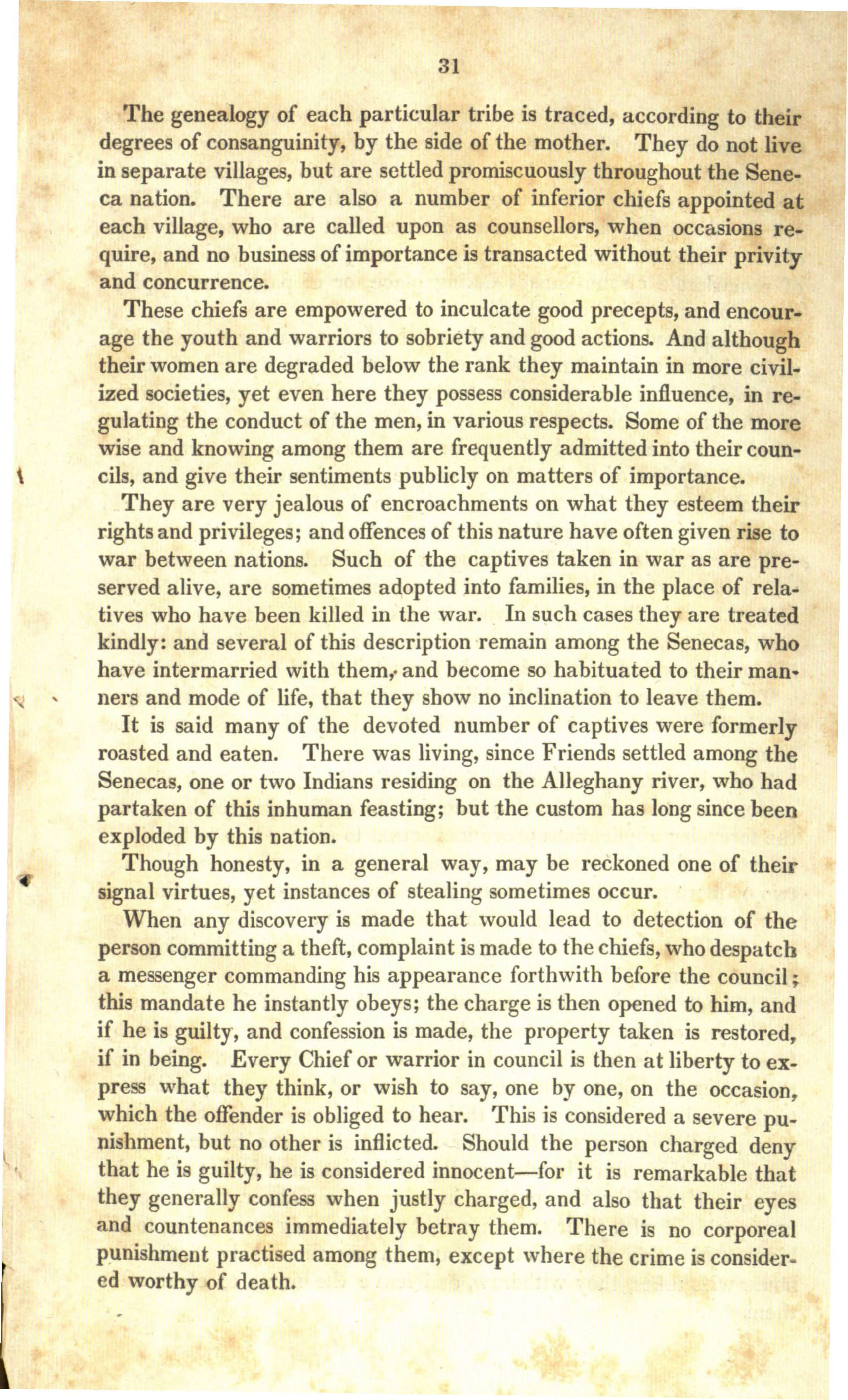The genealogy of each particular tribe is traced, according to their
degrees
of consanguinity, by the side of the mother. They do not live
in separate
villages, but are settled promiscuously throughout the Sene-
ca nation
each village, who are called upon as counsellors, when occasions re-
quire, and no business of importance is transacted without their privity
and concurrence.
These chiefs are empowered to inculcate good precepts, and encour-
age the
youth and warriors to sobriety and good actions. And although
their women
are degraded below the rank they maintain in more civil-
ized societies, yet
even here they possess considerable influence, in re-
gulating the conduct
of the men, in various respects. Some of the more
wise and knowing among
them are frequently admitted into their coun-
cils, and give their
sentiments publicly on matters of importance.
They are very jealous of encroachments on what they esteem their
rights and
privileges; and offences of this nature have often given rise to
war
between nations. Such of the captives taken in war as are pre-
served alive,
are sometimes adopted into families, in the place of rela-
tives who have
been killed in the war. In such cases they are treated
kindly: and several
of this description remain among the Senecas
have intermarried with them, and become so habituated to their man-
ners and mode of life, that they show no inclination to leave them.
It is said many of the devoted number of captives were formerly
roasted and
eaten. There was living, since Friends settled among the
Senecas
partaken of this inhuman feasting; but the custom has long since been
exploded by this nation.
Though honesty, in a general way, may be reckoned one of their
signal
virtues, yet instances of stealing sometimes occur.
When any discovery is made that would lead to detection of the
person
committing a theft, complaint is made to the chiefs, who despatch
a
messenger commanding his appearance forthwith before the council;
this
mandate he instantly obeys; the charge is then opened to him, and
if he is
guilty, and confession is made, the property taken is restored,
if in
being. Every Chief or warrior in council is then at liberty to ex-
press
what they think, or wish to say, one by one, on the occasion,
which the
offender is obliged to hear. This is considered a severe pu-
nishment, but
no other is inflicted. Should the person charged deny
that he is guilty, he
is considered innocent - for it is remarkable that
they generally confess
when justly charged, and also that their eyes
and countenances immediately
betray them. There is no corporeal
punishment practised among them, except
where the crime is consider-
ed worthy of death.

